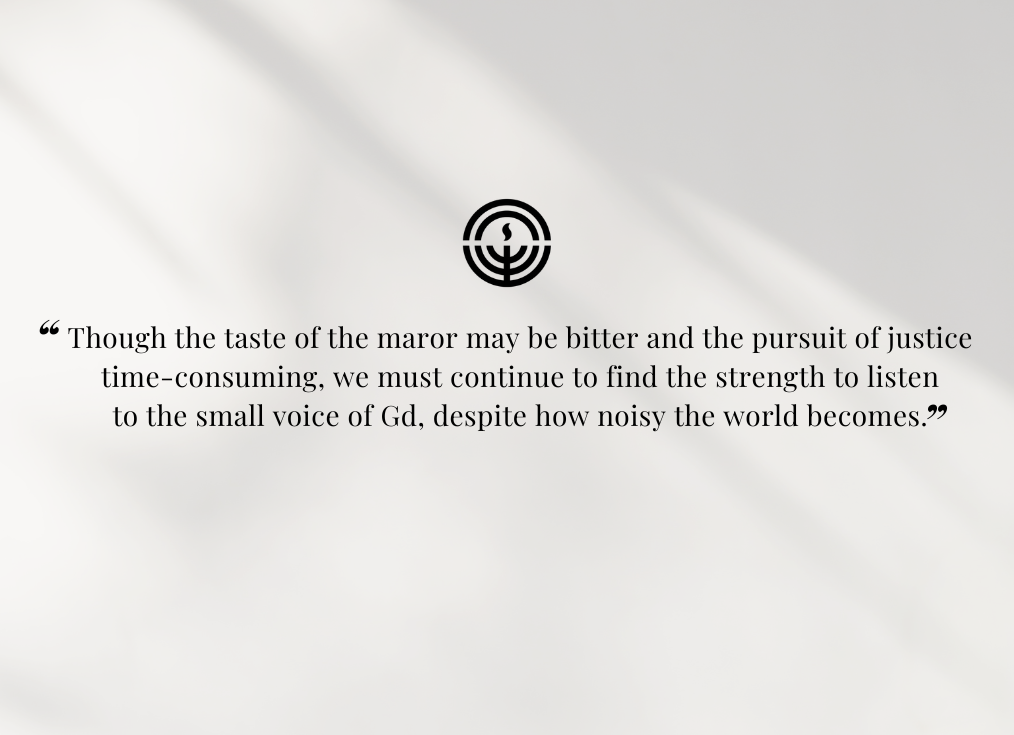Drawing Strength

Rabbi Gamliel taught, “Those who have not discussed the symbolism of the paschal lamb (Pesach), matzah, and bitter herbs (maror) have not fulfilled their obligation of the Passover Seder.” Why do we eat bitter herbs during the Seder? The bitter herbs symbolize the harshness of slavery in Egypt and the continued oppression the Jewish people have faced throughout history.
…
In addition to the discussion, the bitter herbs are eaten to provide a burning reminder that, instead of running, the Jewish world continues to face oppressive forces head-on. To echo what American civil rights activist César Chávez taught, “We draw our strength from the very despair in which we have been forced to live. We shall endure.” The bitterness of the herbs not only opens our sinuses but also opens our ears to hear the voice of Gd calling us to step up for the justice of all oppressed peoples.
We learn from this week’s Torah portion, Vayikra, that the call for justice can be both loud and faint. Gd calls out for the people to perform acts of service, and it is Moses who chooses to propel the instruction. Acts of service are central to the Jewish mission of Tikkun Olam — repairing the world. The Jewish community performs countless acts to help the homeless, march in solidarity with fellow minority groups, speak on behalf of those who cannot speak for themselves, and bring civility to an otherwise chaotic world. Though the taste of the maror may be bitter and the pursuit of justice time-consuming, we must continue to find the strength to listen to the small voice of Gd, despite how noisy the world becomes.
Shabbat Shalom
Cantor Seth Ettinger
Cantor, Temple Beth-El
